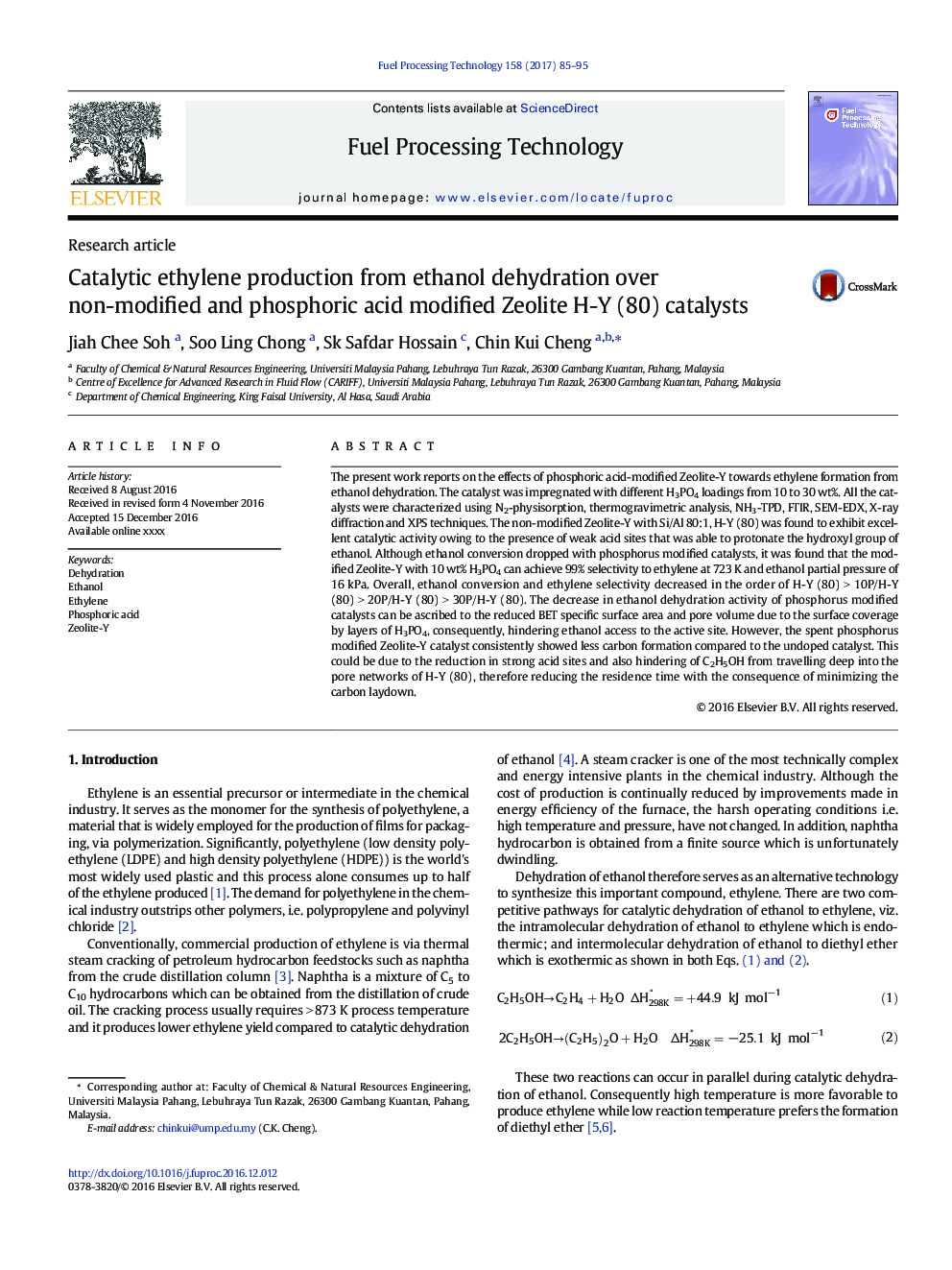| Article ID | Journal | Published Year | Pages | File Type |
|---|---|---|---|---|
| 4768926 | Fuel Processing Technology | 2017 | 11 Pages |
Abstract
The present work reports on the effects of phosphoric acid-modified Zeolite-Y towards ethylene formation from ethanol dehydration. The catalyst was impregnated with different H3PO4 loadings from 10 to 30Â wt%. All the catalysts were characterized using N2-physisorption, thermogravimetric analysis, NH3-TPD, FTIR, SEM-EDX, X-ray diffraction and XPS techniques. The non-modified Zeolite-Y with Si/Al 80:1, H-Y (80) was found to exhibit excellent catalytic activity owing to the presence of weak acid sites that was able to protonate the hydroxyl group of ethanol. Although ethanol conversion dropped with phosphorus modified catalysts, it was found that the modified Zeolite-Y with 10Â wt% H3PO4 can achieve 99% selectivity to ethylene at 723Â K and ethanol partial pressure of 16Â kPa. Overall, ethanol conversion and ethylene selectivity decreased in the order of H-Y (80)Â >Â 10P/H-Y (80)Â >Â 20P/H-Y (80)Â >Â 30P/H-Y (80). The decrease in ethanol dehydration activity of phosphorus modified catalysts can be ascribed to the reduced BET specific surface area and pore volume due to the surface coverage by layers of H3PO4, consequently, hindering ethanol access to the active site. However, the spent phosphorus modified Zeolite-Y catalyst consistently showed less carbon formation compared to the undoped catalyst. This could be due to the reduction in strong acid sites and also hindering of C2H5OH from travelling deep into the pore networks of H-Y (80), therefore reducing the residence time with the consequence of minimizing the carbon laydown.
Related Topics
Physical Sciences and Engineering
Chemical Engineering
Chemical Engineering (General)
Authors
Jiah Chee Soh, Soo Ling Chong, Sk Safdar Hossain, Chin Kui Cheng,
